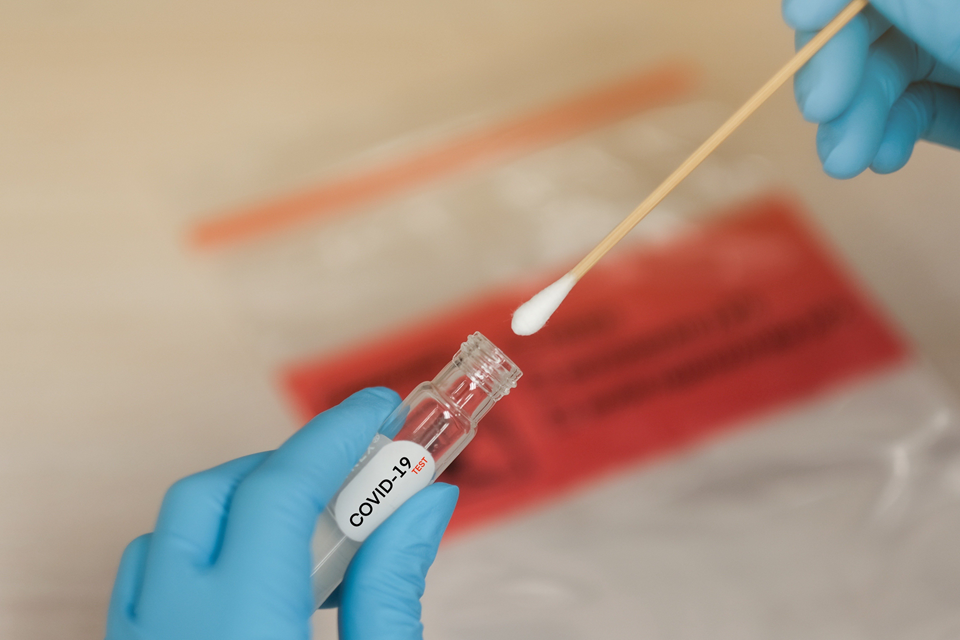MANILA – Fully vaccinated individuals need not present swab test results if they want to travel within the Philippines, the Inter-Agency Task Force for the Management of Emerging Infectious Diseases (IATF-EID) said on Sunday.
Presidential Spokesperson Harry Roque said under the new “protocols” provided under the IATF-EID Resolution No. 124-5, fully vaccinated people will only need to present their vaccination card for interzonal travel as well as for intrazonal movement.
“A fully vaccinated individual is someone who has more than or equal to 2 weeks after having received the second dose in a 2-dose vaccine; or more than or equal to 2 weeks after having received a single-dose vaccine,” Roque, also spokesperson of the IATF-EID, said in a statement.
Citing the same IATF-EID resolution, Roque said a fully vaccinated must be administered with vaccines that are included in the Emergency Use Authorization (EUA) List or Compassionate Special Permit (CSP) issued by the Philippine Food and Drug Administration or Emergency Use Listing of the World Health Organization (WHO).
Intrazonal movement
Roque said intrazonal movement of fully vaccinated senior citizens within the areas under the general community quarantine and modified GCQ imposed to contain the Covid-19 pandemic “shall continue to be allowed.”
“This, however, is subject to the presentation of a Covid-19 domestic vaccination card duly issued by a legitimate vaccinating establishment, or certificate of quarantine completion showing the holder’s vaccination status as may be issued by the Bureau of Quarantine,” he said.
Intrazonal travel is the movement of people, goods and services between localities under the same community quarantine classification, without transiting through an area placed under a different classification.
Interzonal travel
For interzonal travel allowed under amended “pertinent resolutions” of the IATF and provisions of the Omnibus Guidelines on the community quarantine implementation, Roque said the presentation of vaccination card “shall be sufficient alternatives” for any testing requirement which the local government of destination may require.
“This interzonal travel shall likewise apply to fully vaccinated senior citizens. Also, the traveler needs to undergo health and exposure screening upon arrival in the local government of destination,” Roque said.
Interzonal travel is the movement of people, goods and services across areas placed under different community quarantine classifications.
Last week, President Rodrigo Duterte approved the recommendation to extend GCQ in the National Capital Region Plus (NCR Plus) composed of Metro Manila, Bulacan, Cavite, Laguna, and Rizal until July 15.
The GCQ status will also be imposed in Baguio City, Apayao, City of Santiago, Isabela, Nueva Vizcaya, Quirino, Batangas, Quezon, Guimaras, Aklan, Bacolod City, Negros Occidental, Antique, Capiz, Zamboanga Sibugay, City of Zamboanga, Iligan City, General Santos City, Sultan Kudarat, Sarangani, Cotabato, South Cotabato, Agusan del Norte, Surigao del Norte, Agusan del Sur, and Cotabato City for the entire July.
Cagayan, Bataan, Lucena City, Puerto Princesa, Naga City, Iloilo City, Iloilo, Negros Oriental, Zamboanga del Sur, Zamboanga del Norte, Cagayan de Oro City, the entire Davao region, Butuan City, Dinagat Islands, and Surigao del Sur are under stricter modified enhanced community quarantine until July 15.
The rest of the country will remain under MGCQ for another month.
Shortened 7-day quarantine
IATF Resolution No. 124-B also stated that in situations when fully vaccinated individuals are close contacts of probable and confirmed Covid-19 cases, they may undergo a shortened 7-day quarantine period only if they remain asymptomatic for the duration of the 7-day period.
“In case there is a need for [reverse transcription – polymerase chain reaction] RT-PCR testing, this may be done not earlier than the 5th day after the date of the last exposure,” the resolution read.
For close contacts who may have been traced beyond the 7th day from the last exposure and who remained asymptomatic, no testing and quarantine shall be required.
Once the RT-PCR test yields a positive result, or th

